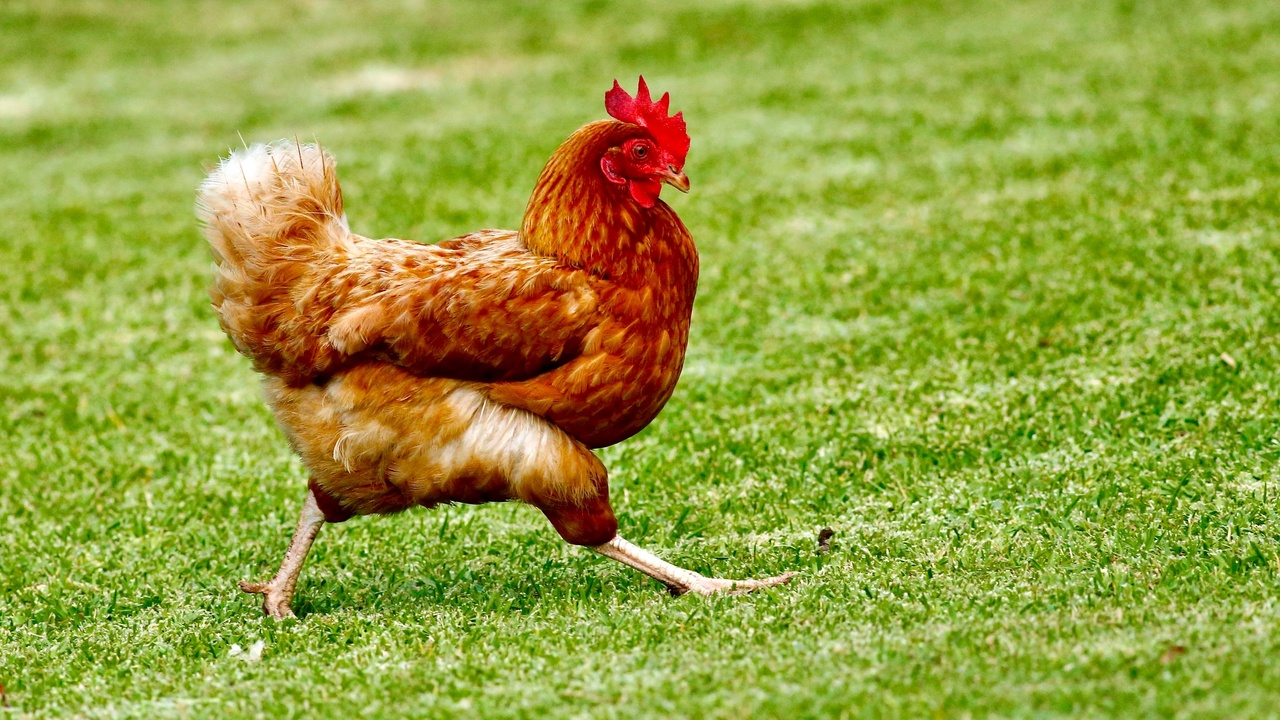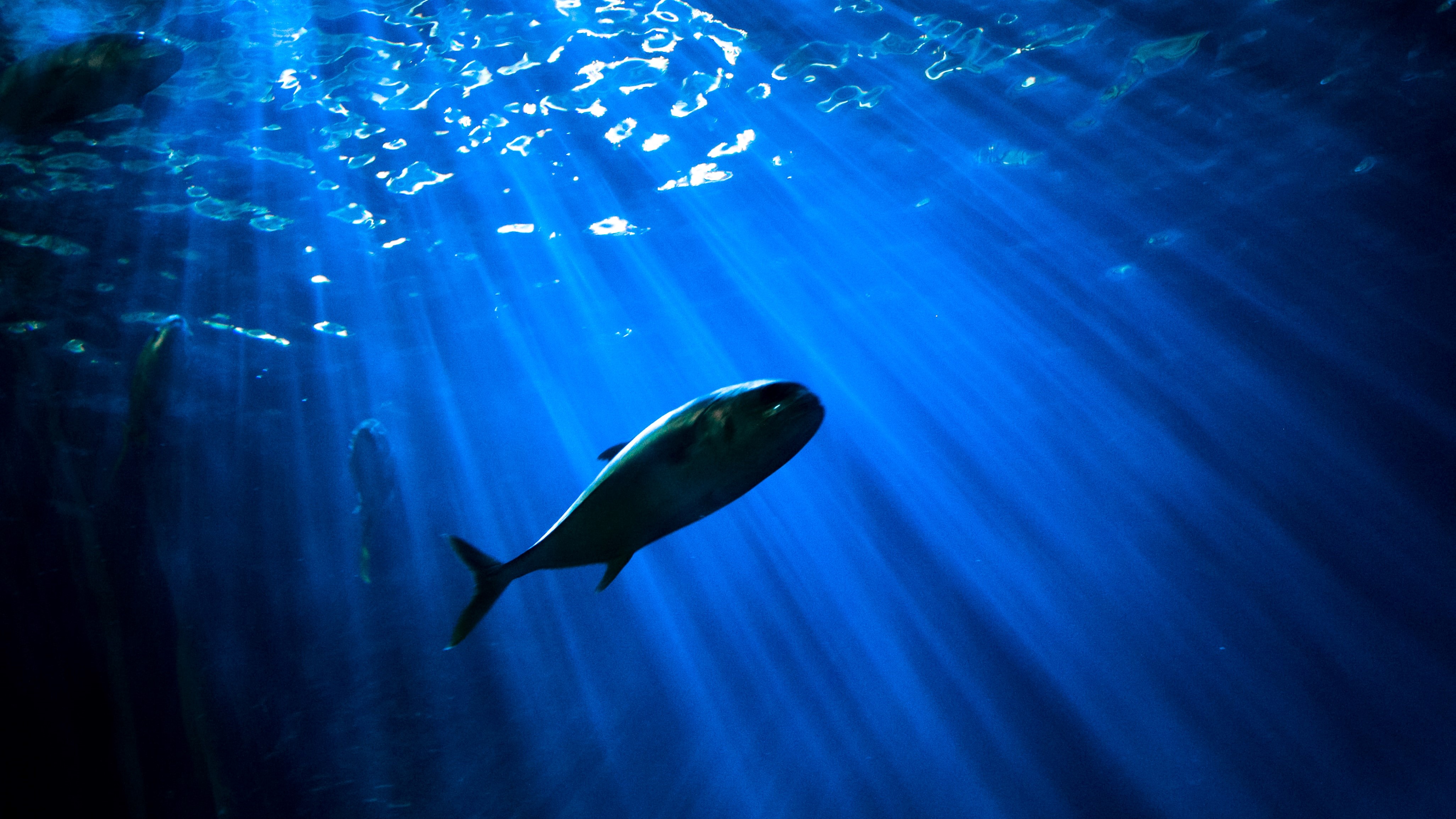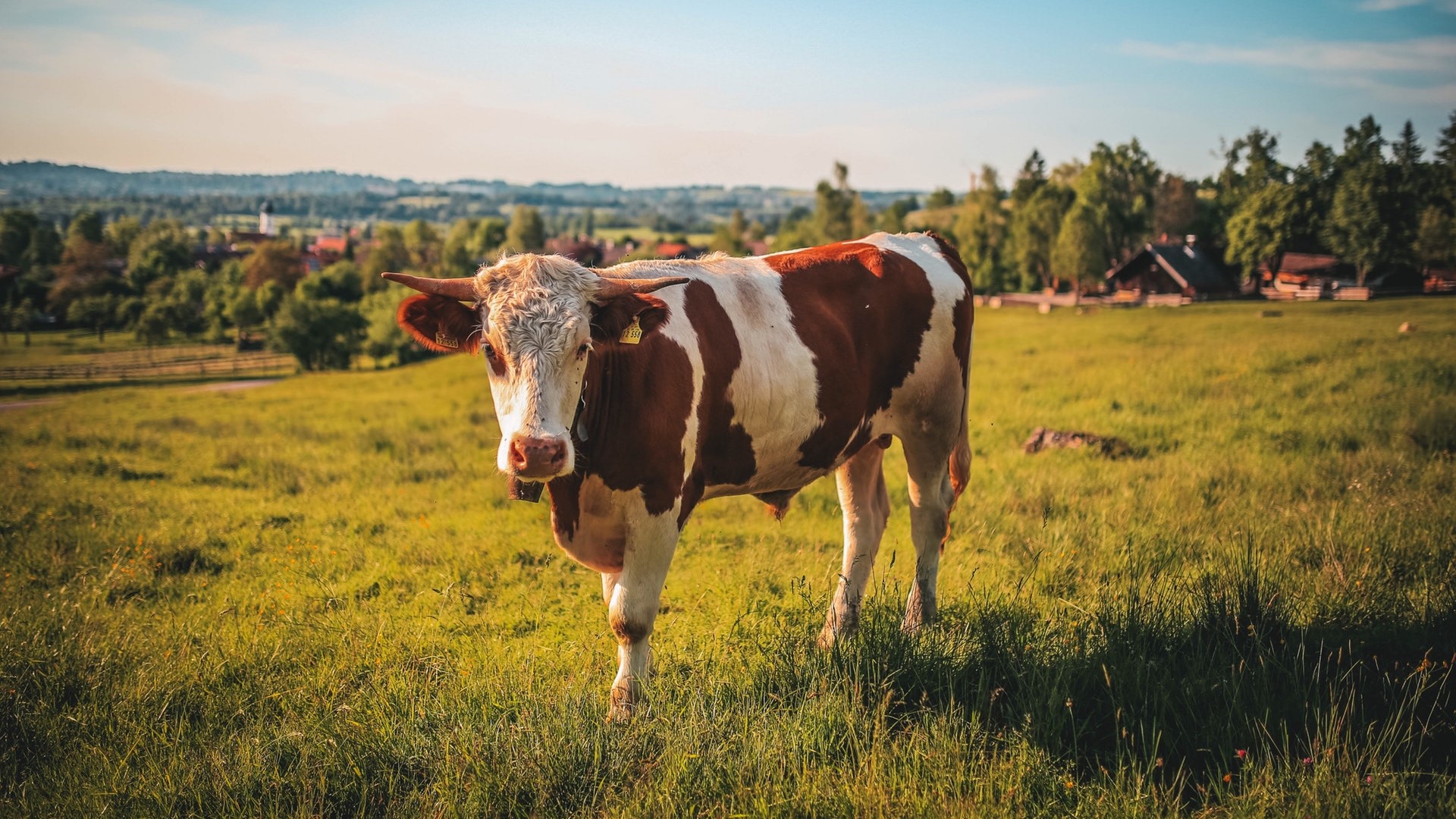March 2022: The Month in Review

March marked a solid end to the first quarter of 2022 for the cellular agriculture field. Compared to conventional livestock agriculture, cellular agriculture offers an alternative and more sustainable way to produce animal products directly from cell cultures. Without requiring animals in the production process.
From new product launches to new investments and partnerships, we highlight what happened this March 2022 in cellular agriculture.
Investments
Finless Foods
Cell-cultured seafood company Finless Foods announced that the company raised $34 million in Series B funding. Based in the San Francisco Bay Area, Finless Foods is the first company to focus on using cellular agriculture to produce seafood, specifically bluefin tuna.
According to the announcement, Finless Foods’ funding round was led by Hanwha Solutions and featured investments from Japanese seafood company Dainichi Corp, At One Ventures, Draper Associates, and SOSV.

Finless Foods’ new financing brings the company’s total funding to approximately $48 million. Finless Foods previously shared that the company raised $10 million in Series A funding and, in June 2018, raised $3.5 million in seed funding.
Finless Foods plans to use the funding round to expand its team and complete the construction of its pilot plant this year. Pending regulatory approval, Finless Foods intends to produce its first saleable cell-cultured bluefin tuna from the facility. The company previously shared its first cell-based seafood product will be sashimi.
In addition to cell-cultured seafood, Finless Foods plans to launch its plant-based tuna product into foodservice channels nationally this year. While a plant-based product was not initially on the company’s radar, Finless first shared in June 2021 that the opportunity emerged while developing its cell-cultured bluefin tuna meat.
Core Biogenesis
At the end of March, French startup Core Biogenesis announced that the startup raised EUR 10 million in funding to produce growth factors. Core Biogenesis aims to create growth factors to support cell-based meat companies and the cell therapy industry by harnessing plants as a protein expression platform.
Producing animal-free and inexpensive growth factors is a key scaling challenge for the cellular agriculture field that Core Biogenesis believes its platform can address. Core Biogenesis plans to use the funding round to expand its team and scale up to its first industrial facility. The funding round was led by XAnge and also featured investments from Blue Horizon.
MeliBio
Cell-cultured honey, anyone? New startup MeliBio raised $5.7 million in seed funding to produce honey directly from cell cultures instead of relying on bees to make it. The company plans to use the funding round to accelerate its research and development around scaling its microbe platform to develop a cell-cultured honey product. MeliBio also plans to expand its team.
 MeliBio's animal-free honey product
MeliBio's animal-free honey product
In October 2021, MeliBio showcased its plant-based honey alternative and plans to launch it next month in April. The funding round was led by Astanor Ventures and featured investments from Skyview Capital, Collaborative Fund, Big Idea Ventures, and 18 Ventures.
Umami Meats
New startup Umami Meats announced that the company raised $2.4 million in pre-seed funding to develop cell-cultured seafood. Based in Singapore, Umami Meats plans to use the funding round to advance and scale its production system, including establishing cell lines from multiple fish species and reaching price parity for its cell culture media formulation. Umami Meats’ funding round was co-led by Better Bites Ventures and Genedant and featured investments from CULT Food Science, Plug & Play Ventures, and Katapault Ocean.
Eat Just Launches Cell-Cultured Chicken at Singapore Hawker Restaurant
At the start of March, Loo’s Hainanese Curry Rice became the first hawker in Singapore to sell Good Meat’s cell-cultured chicken in a meal.
After first receiving regulatory approval in December 2020, this is the first time that Good Meat sold its cell-cultured chicken at a hawker restaurant. An integral part of the food culture in Singapore, hawker centers are collections of food stalls where people find delicious and affordable meals.
 Good Meat's cell-cultured chicken curry rice
Good Meat's cell-cultured chicken curry rice
According to the announcement, Loo’s Hainanese Curry Rice sold the cell-cultured chicken with white rice in curry along with eggplant and cai xin, a Chinese flowering cabbage. Interestingly, it was notable that the price of the cell-cultured chicken dish was $4, as Good Meat subsidized the cost during the limited release event.
By showcasing a limited launch at the price point of $4, Good Meat highlights its goal (and wider field’s goal) to ultimately scale production to the point where hawkers and restaurants can sell its cell-cultured meats in meals for as low as conventional meat.
Moving forward, Good Meat plans to collaborate with more hawkers in Singapore to promote its cell-cultured chicken meat, particularly those with signature chicken dishes. Good Meat will likely have another showcase of its cell-cultured chicken at a hawker center in April.
The product showcase continues the Eat Just subsidiary’s momentum from the end of 2021. In December 2021, Good Meat received regulatory approval in Singapore to sell new types of its cell-cultured chicken in Singapore, including its cultured chicken breast meat.
Along with the new product approval, Good Meat shared that the company is working to increase the capacity of its production facility in Singapore to enable large-scale production. Good Meat aims to have all the equipment installed and operational in two years.
The Every Company Partners with Chantal Guillon to Launch Animal-Free Macaron
The Every Company announced a partnership with specialty macaron company Chantal Guillon to launch its cell-cultured egg white product in a new animal-free macaron product at the end of March. Formerly known as Clara Foods, The Every Company is a startup that uses cellular agriculture to produce animal-free proteins, specifically egg proteins.
 Animal-free egg white protein macarons by The Every Company and Chantal Guillon
Animal-free egg white protein macarons by The Every Company and Chantal Guillon
According to the announcement, Chantal Guillon will include The Every Company’s newly launched Every EggWhite ingredient in its macarons. According to The Every Company, Every EggWhite is the world’s first animal-free egg white product that delivers the functional aspects of egg white that formulators are looking for to make animal-free baked goods.
From whipping and gelling to binding and foam stability, The Every Company claims the unique functional properties of its cell-cultured egg proteins give the Every EggWhite product a distinct advantage over plant-based egg alternatives in baked goods.
At the limited-release launch, Chantal Guillon’s macarons with Every EggWhite will be shipped nationwide in the US and available in Chantal Guillon’s stores in the San Francisco area. The macarons come in six flavors and come in boxes of six pieces. It’s notable that the price of one box, $28, is on par with the price point of Chantal Guillon’s other offerings.
Regarding labeling, in the promotional video, the Every EggWhite bag includes a label of ‘animal-free egg white replacer’ and includes an egg allergen warning. In addition, each co-branded macaron box contains an egg allergen warning and is also described as ‘vegan’ and ‘animal-free.’
At the time of the announcement, The Every Company shared it was preparing to notify the FDA of its GRAS determination for its Every EggWhite product. The company previously received GRAS determination for its ClearEgg product.
The new partnership marks The Every Company’s third product launch. In March 2021, the company launched its first product, an animal-free pepsin protein. Then, in November 2021, The Every Company partnered with plant-based snack company Pressed to launch its ClearEgg product in a Pressed juice smoothie.
SuperMeat Announces New Strategic Partnerships
Cell-based meat company SuperMeat announced a strategic partnership with Japanese food and biotech corporate Ajinomoto to establish a viable supply chain platform for the cell-cultured meat industry. As part of the partnership, Ajinomoto will invest in SuperMeat.
Through the partnership, the two companies will create and validate commercially viable production and value chain solutions to accelerate the cell-based meat industry. One area of focus in the partnership is to develop the ingredient components for an affordable and animal-free cell culture media, including the key growth factors required.
The project is part of Ajinomoto’s 2020-2025 Medium-Term management plan to become a solution provider in food and health issues. By forming the partnership with SuperMeat, Ajinomoto recognizes that cell-cultured meat can be a viable solution to protein supply issues and aims to contribute to establishing a sustainable value chain around the field.
 SuperMeat's cell-cultured chicken burger
SuperMeat's cell-cultured chicken burger
At the same time, SuperMeat also announced a partnership with PHW Group, one of Europe’s largest poultry producers. According to the Memorandum of Understanding, the two companies will work together to bring cell-based meat to the market.
Both SuperMeat and PHW will work together to obtain EU authorization for SuperMeat’s cell-cultured meat products and aim to be among the first companies to manufacture and distribute cell-based meat on a large scale.
Interestingly, the press announcement specifically mentioned cell-cultured chicken, turkey, and duck meats as part of the announcement. To date, SuperMeat has only showcased and launched its cell-cultured chicken at its test kitchen, The Chicken. PHW Group also previously invested in SuperMeat.
CJ CheilJedang Partners with KCell Biosciences to enter the Cell-based Meat Sector
In South Korea, food and biotech corporate CJ CheilJedang announced a partnership with the cell culture media startup KCell Biosciences to enter the cell-based meat field.
According to the partnership, CJ CheilJedang, one of Asia’s largest food and biotech companies, will work to develop and supply cell culture media materials specifically for cell-cultured meat, and KCell Biosciences will focus on media production. The companies will collaborate to create a cost-competitive cell culture media formulation that can be quickly scaled.
Later this year, the two companies will also work together to construct a cell culture media facility in Busan, South Korea. When completed, the companies claim that the facility will offer the largest capacity for cell culture media production in Korea and the second largest in the entire APAC region.
CJ CheilJedang previously invested in Aleph Farms’ Series B funding round and Shiok Meats’ bridge round in July 2021.
Shiru Partners with CP Kelco to Discover Novel Protein Ingredients
Food ingredients company CP Kelco announced a partnership with acellular agriculture company Shiru to use the company’s proprietary platform to discover novel functional protein ingredients.
According to the partnership, CP Kelco will leverage Shiru’s discovery platform Flourish to identify functional ingredients for different food formulations. Shiru will then produce these ingredients via precision fermentation and validate their performance in food. Once identified, CP Kelco will scale up these proteins with its fermentation capabilities and further validate their performances in food prototypes by the end of this year.
According to the announcement, the first promising candidates include novel replacements for methylcellulose as a gelling agent and emulsifier for plant-based meat alternatives.
BetterMilk Rebrands to Opalia and Removes FBS
Formerly known as BetterMilk, the Canadian cell-based dairy startup recently rebranded to Opalia. By feeding and raising bovine mammary cells, Opalia aims to train its cells to produce milk directly instead of raising cows to produce the same milk.

Along with the rebranding, the company shared that it successfully removed fetal bovine serum from its cell culture media formulation. A key milestone for Opalia, an animal-free cell culture media is vital for scaling future production of its cell-based dairy directly from bovine mammary gland cells.
Considering that the milk-producing cells would not be in the final dairy products, Opalia co-founder Jennifer Côté pointed out that cell-based dairy may have a different regulatory framework than cell-cultured meat.
Opalia also shared that the startup has raised $1 million in pre-seed funding from CULT Food Science, Big Idea Ventures, and Sustainable Food Ventures.
Aleph Farms Announces New Collagen Product
Cell-based meat company Aleph Farms announced its plans to develop cell-based collagen as its next product line. Based in Rehovot, Israel, Aleph Farms is the first startup to use cellular agriculture to develop cell-based steaks.
 Aleph Farms' cell-based collagen
Aleph Farms' cell-based collagen
According to the announcement, cell-based collagen is the first new product from Aleph Farm’s newly launched incubator, Aleph Frontiers. The research team worked on the collagen product for 18 months in stealth mode before moving to the product development stage.
By producing collagen directly from its bovine animal cells, Aleph Farms claims that its cell-based collagen has the same functional attributes on par with conventional animal-derived collagen and is unmatched by plant-based or acellular collagen products. The company aims to launch its collagen by 2024.
Upside Foods Begins Hosting Public Tours of Facility
Cell-based meat company Upside Foods shared that it hosted the first public tour of its new pilot plant in Berkeley, California. Calling the facility EPIC (Engineering, Production, and Innovation Center), Upside Foods’ public tours are part of the company’s goal to introduce consumers to cell-based meat and its ability to offer a more sustainable way to produce meat directly from cells.
 Upside Foods' cell-cultured meat facility, EPIC
Upside Foods' cell-cultured meat facility, EPIC
Along with helping potential consumers learn about cell-cultured food production, the new facility tours also highlight how cellular agriculture can provide a way to make food production more transparent by showing consumers exactly where their food comes from. Upside Foods first opened its pilot plant in November 2021 and can produce up to 50,000 pounds of finished cell-based meat annually.
Good Dog Food Launches to Develop Cell-Cultured Pet Food
Cell-cultured dog food, anyone? New startup Good Dog Food recently launched in the UK as a joint venture between venture capital firm Agronomics and cell-based meat cell line developers Roslin Technologies.

Considering that American pets consume enough meat to be the fifth most meat-consuming nation globally, Good Dog Food aims to apply cellular agriculture technologies to help reduce the environmental impact of pet food globally. CEO Owen Ensor will lead the new pet food startup.
Betterland Foods Launches Woo Bar with Perfect Day’s Dairy Proteins
After first launching at the end of February, Betterland Foods announced its first product using Perfect Day’s cell-cultured dairy proteins: a snack bar called Woo bar. Betterland Foods first announced its partnership with Perfect Day to launch a cow-free dairy milk product called Betterland Milk.
 Betterland Foods' Woo Bar featuring Perfect Day's animal-free dairy proteins
Betterland Foods' Woo Bar featuring Perfect Day's animal-free dairy proteins
Betterland Foods aims to launch the milk product in the spring in the US. In addition to the Betterland Foods partnership, Perfect Day announced a range of partnerships with traditional food companies in November 2021, including new cream cheese and whey protein product lines, and a partnership with Starbucks.
Survey Suggests Singaporeans Have Higher Acceptance of Cell-Cultured Meat than Americans due to Social Image
A new study published in the journal Appetite found that Singaporeans have a higher acceptance of cell-cultured meat than Americans due to a stronger social image of eating motivations.
According to the study, Singaporeans are more likely to be motivated to eat a novel product for its favorable social image compared to Americans. In addition, the study suggested that Singaporeans may potentially be motivated by ‘kiasu-ism,’ a cultural trait exemplified by fear of losing out or being left behind.

The study surveyed 616 Singaporeans and 759 Americans during the summer of 2021. In the survey, participants were asked to rate their attitudes towards cell-cultured meat and their willingness to buy and try it. A social image eating motivation scale was used to understand why would consume the product.
In December 2020, Singapore gave regulatory approval to sell cell-cultured meat by Eat Just.
Biotech Food Publishes Research on Meat Texturizing
In a new research paper published in the Nature journal, Spanish cell-based meat startup BioTech Foods demonstrated its new research methodology to study the mechanical characterization of cell-based meat to compare it with conventional meat better.
By modifying the ingredients composition and processing methods of its cell-cultured meat, the BioTech Foods team aimed to match the mechanical texture properties of meat products already consumed in the market. According to BioTech Foods, there was no experimental description of cultured meat’s mechanical properties before this study, and studying this topic will be important for consumer acceptance.
In November 2021, BioTech Foods was acquired by Brazilian meat corporate JBS for an undisclosed sum as part of the company’s $100 million entry into the cellular agriculture field.
MeaTech Plans New Facility in Belgium
Cell-based meat company MeaTech 3D announced plans to construct a pilot plant in Belgium for its subsidiary, Peace of Meat. The company believes that the new 21,530 square feet facility will accelerate its cultured avian technology and R&D capabilities for market entry. In September 2021, Peace of Meat produced just over 700 grams of pure cultured chicken fat biomass in a single production run. In 2020, MeaTech 3D became the first company to acquire another startup by acquiring Peace of Meat.
 MeaTech 3D's proposed Facility in Belgium
MeaTech 3D's proposed Facility in Belgium
108Labs Unveils M2 Smart Bioreactor System
Cell-based dairy startup 108Labs recently unveiled its M2 smart bioreactor milk production system. Founded by Shayne Giuliano, 108Labs stated its M2 bioreactor production system is species agnostic and can be used to create a range of cell-based dairy, including both bovine dairy ingredients and human breast milk.
108Labs believes its first M2 production system stack will be ready between 18 and 24 months. In addition to its bioreactor system, 108Labs shared that the company is developing a line of growth factors and cell culture media formulation for cell-based dairy called Pure Milk.
APAC Society for Cellular Agriculture Launches to Advocate Across the Region
Earlier in March, the APAC Society for Cellular Agriculture (APAC-SCA) officially launched.
Similar to the AMPS Innovation regulatory coalition in the US, the APAC-SCA consists of different cell-cultured meat and seafood companies from across the region and aims to advocate for the field and engage various stakeholders as the field comes to market. The APAC-SCA initially plans to connect with key policymakers within regulatory spheres to help companies bring their products to market and offer access to educational materials.
With 11 founding members, it is notable that the APAC-SCA consists of companies across Asia, including Israel, and not just companies from the APAC region.
Dutch Government Legalizes Sampling of Cell-Based Meat Products
Earlier in March, the Netherlands government passed a motion to legalize the sampling of cell-based meat products in the country. Following a vote in the Dutch House of Representatives in mid-March, cellular agriculture companies can now host public samplings for their cell-based meat products.
While many questions remain about the regulatory approval process for cell-based meat in Europe, it is promising to see the Netherlands government update its laws to allow public sampling of cell-based meat. The move may signal the Netherlands’ interest to continue supporting the field as a European hub for the field.

Moving forward, it will be interesting to see how the two Dutch cell-based meat companies, Meatable and Mosa Meat, respond to the new legislation. Like SuperMeat in Israel, the Dutch startups may consider opening test kitchens to allow public sampling of their cell-based meats and highlight their production processes for regulatory approval.
In November 2020, cell-based meat company SuperMeat launched the first cell-based meat restaurant experience at its test kitchen, The Chicken. While there is no regulatory framework for cell-based meat in Israel, SuperMeat can serve its cell-based chicken for customer feedback on its product as SuperMeat prepares for large-scale production.
Louisana Deems Labelling Law Unconstitutional
Beyond regulation around food safety, one of the major questions about cellular agriculture meat products is how will they be labeled? In the fight for the word meat, a district court in Louisana determined that a state law restricting meat terms on food labels was unconstitutional.
The Louisiana state law took effect in October 2020 and prohibited companies from using meaty terms on products that did not derive from the carcass of a slaughtered animal. While this focused on plant-based companies, the legislation also aimed to prevent cellular agriculture companies from labeling their cell-cultured animal products with conventional animal product terminology.
Motif FoodWorks and Impossible Foods Enter Lawsuit Over Plant-based Meat ingredients
On March 9th, plant-based company Impossible Foods filed a lawsuit against Motif FoodWorks. In this case, Impossible Foods accuses Motif FoodWorks of infringing its patent covering the use of heme ingredients in meat substitutes; Motif FoodWorks dismisses the lawsuit as baseless. With two high-profile alternative protein legal proceedings currently ongoing, will we see more lawsuits as companies move from collaborators to competitors?
Conclusion

From a range of new partnerships and investments, March was an incredible month for the cellular agriculture field to wrap up the first quarter of 2022.
In particular, the number of partnership announcements by traditional food and meat players to enter the cellular agriculture field signals how the field is growing from an idea to becoming a potential part of our future food system. From supplying ingredients for the cell culture media to distribution, there are many ways that traditional food companies can become part of the cell-based meat supply chain.
Along with new product showcases, Aleph Farms’ announcement this month continues the trend of cellular agriculture companies looking to develop cell-based collagen products. Considering that collagen can be used in various products and industries beyond food, such as leather and cosmetics, it’s not surprising to see different companies explore opportunities in the collagen market.
In November 2020, the startup Jellatech launched as the first cell-based collagen and gelatin company with a cell-based marine collagen prototype. Similarly, in February 2021, cell-based seafood startup Avant Meats announced the launch of its product line Zellulin to produce cell-based collagen using marine peptides.
At the same time, acellular agriculture company Geltor recently announced that its cell-cultured collagen product can now be manufactured at a commercial scale. Branding the product PrimaColl, Geltor first launched the first cell-cultured collagen product for the food and nutrition market in June 2021.
Stay connected with CellAgri
Join our mailing list to receive the latest news and updates weekly from the cellular agriculture industry. Your information will not be shared.





